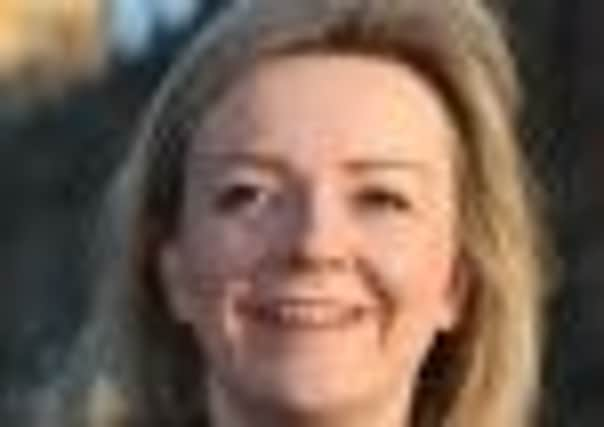Will compulsory maths turn out to be a plus – or minus?


THOSE who dropped the study of maths as fast as they could after a less-than-glittering performance at O-level or GCSE may shudder at these next words: teenagers should be made to study maths up to the age of 18 to improve the nation's skills in the subject, according to one Conservative MP.
Elizabeth Truss, argues that maths should be separated from other qualifications, with pupils studying it alongside A-levels, an apprenticeship or vocational courses.
Advertisement
Hide AdAdvertisement
Hide AdIn a paper on maths learning published in response to Ofqual opening consultation on reforms to A-levels, Ms Truss suggests making maths compulsory by 2015, in line with plans to raise the school leaving age to 18.
She calls for three levels of study – core, preparatory and higher – with each student taking a level at the same time as their other qualifications.
Core maths would be taken by arts students, or those taking other vocational courses, and the preparatory level would be for those studying social sciences or technical and engineering-based vocational qualifications.
Higher maths would be aimed at those planning to take maths or science at university, or those on highly technical apprenticeships. It would be equivalent to current A-level maths and further maths.
Advertisement
Hide AdAdvertisement
Hide AdMs Truss, who represents South West Norfolk, says maths is the subject in which the UK performs poorest in international league tables, but is also the one most in demand.
"The proposal is that mathematics should be 'decoupled' from other A-levels and vocational courses and offered as a separate course taken by all students," the paper says. "It could then be offered in three levels for all 16 to 18 -year-olds accompanied by two or three A-levels, a vocational qualification or an apprenticeship.”
Ms Truss says that reforms are needed because evidence shows there is a shortage of maths teachers to teach the next generation, while many adults do not have good enough maths skills for work or modern life. Only 20 per cent of students study maths post-16. Ms Truss said: “Current failings are hampering social mobility and the UK's long-term competitiveness."
Professor Alan Smithers, director of the Centre of Education and Employment Research at the University of Buckingham, disagrees with Ms Truss’s proposal for several reasons, although he believes we do need to examine our country’s poor record in maths.
Advertisement
Hide AdAdvertisement
Hide AdLast summer only 65.5 per cent of those who sat GCSE Maths in England attained a C grade or above. At 60.7 per cent students in Yorkshire performed worst of any region, with fewer than half the students taking the exams in Barnsley attaining at least a C.
“I think it’s an intrinsically bad to ‘bolt on’ maths beside other things, and I’m opposed to compulsion,” says the professor. “One of the reasons maths results are poor is that it’s hard to get people with good maths skills into primary teaching and we pitch exams too low, with the emphasis on ‘floor targets’, whereby schools that don’t get 35 per cent A-Cs are at risk of closure or being turned into an academy.
“The emphasis is on levering up from the bottom. I want to see a focus on improvements in teaching through the National Curriculum rather than separating maths out.
“Students have natural leanings by the age of 16 and many will find obligatory maths anathema, so this suggestion would lead to truancy and we already know that 10 per cent of Year 11s (15-16 year-olds) tend to absent themselves regularly.
Advertisement
Hide AdAdvertisement
Hide Ad“But it is an important subject that does need to be designed into qualifications from age 14 upwards. Ms Truss has put her finger on a problem, but not on the right solution, in my opinion. Obviously those going to university need to stay on until 18, but with other qualifications I’d prefer to see quality-based routes not age-related compulsion.”
Prof Smithers thinks the European model of teaching vocational maths to apprentice plumbers, hairdressers etc so that they see its relevance to their working life is one pathway to better maths skills across the population.
He would also like to see the formal teaching of maths starting later, around the age of seven.
“At six, many children are not able to grasp the pencil properly to do maths, and they can experience a sense of failure early on that never leaves them,” adds Prof Smithers. “In Sweden, for instance, children start later, and by the age of 10 have overtaken the performance of children in this country.”